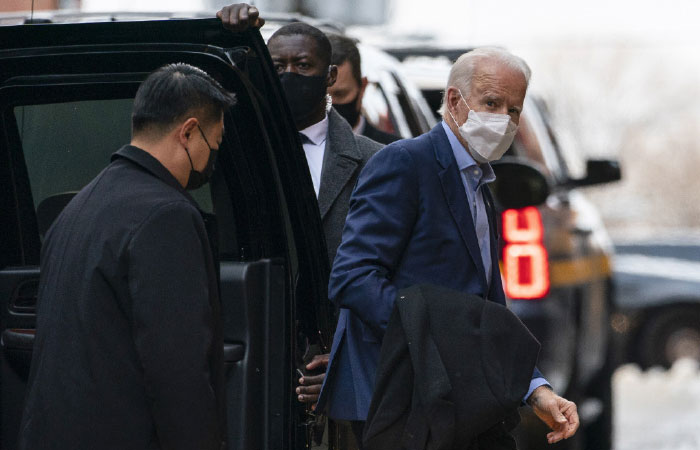WASHINGTON- All fingers are pointing to Russia as the source of the worst-ever hack of U.S. government agencies. But President Donald Trump, long wary of blaming Moscow for cyberattacks, has been silent.
The lack of any statement seeking to hold Russia responsible casts doubt on the likelihood of a swift response and suggests any retaliation — whether through sanctions, criminal charges or cyber actions — will be left in the hands of President-elect Joe Biden’s incoming administration.
“I would imagine that the incoming administration wants a menu of what the options are and then is going to choose,” said Sarah Mendelson, a Carnegie Mellon University public policy professor and former U.S. ambassador to the U.N.’s Economic and Social Council. “Is there a graduated assault? Is there an all-out assault? How much out of the gate do you want to do?”
To be sure, it’s not uncommon for administrations to refrain from leveling public accusations of blame for hacks until they’ve accumulated enough evidence. Here, U.S. officials say they only recently became aware of devastating breaches at multiple government agencies in which foreign intelligence agents rooted around undetected for as much as nine months. But Trump’s response, or lack thereof, is being closely watched because of his preoccupation with a fruitless effort to overturn the results of last month’s election and because of his refusal to publicly acknowledge that Russian hackers interfered in the 2016 presidential election in his favor.
Exactly what action Biden might take is unclear, or how his response might be shaped by criticism that the Obama administration did not act aggressively enough to thwart interference in 2016. He offered clues in a statement Thursday, saying his administration would be proactive in preventing cyberattacks and impose costs on any adversaries behind them.
U.S. government statements so far have not mentioned Russia. Asked about Russian involvement in a radio interview Monday, Secretary of State Mike Pompeo acknowledged that Russia consistently tries to penetrate American servers, but quickly pivoted to threats from China and North Korea.
Democratic Sens. Dick Durbin and Richard Blumenthal, who were briefed Tuesday on the hacking campaign in a classified Armed Services Committee session, were unequivocal in blaming Russia.
There are other signs within the administration of a clear-eyed recognition of the severity of the attack, which happened after elite cyber spies injected malicious code into the software of a company that provides network services. The civilian cybersecurity agency warned in an advisory Thursday that the hack posed a “grave risk” to government and private networks.
U.S. Cyber Command has also taken more proactive measures, engaging in what officials describe as “hunt forward” operations that let them detect cyber threats in other countries before they reach their intended target. Military cyber fighters, for instance, partnered with Estonia in the weeks before the U.S. presidential election in a joint operation aimed at identifying and defending against threats from Russia.
While the U.S. is also prolific in its offensive cyberintelligence-gathering — tapping allied foreign leaders’ phones and inserting spyware into commercial routers, for instance — such efforts are measured compared to the infection of 18,000 government and private-sector organizations in the SolarWinds hack, Healey said.
The better response — since espionage itself is not a crime — is to triple down on defensive cybersecurity, Healey said.
David Simon, a cybersecurity expert and former Defense Department special counsel, said there must be consequences for those who responsible for attacks — and the Trump administration “has fallen far short in holding the Kremlin accountable.”
“Until it’s clear the U.S. will impose meaningful costs on adversaries,” he said in an email, “a material change in the Kremlin’s behavior is not likely to be seen.” (AP)
Home » World » With Trump silent, reprisals for hacks may fall to Biden
With Trump silent, reprisals for hacks may fall to Biden

